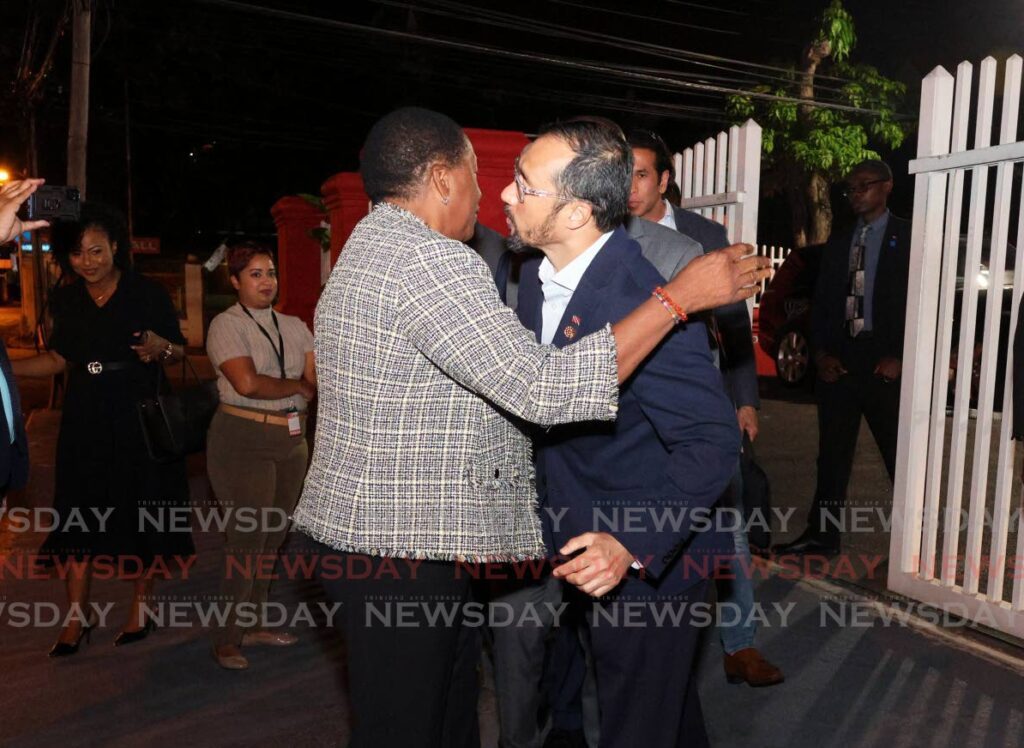Political analyst: Government won't collapse over PNM split

POLITICAL analyst Dr Bishnu Ragoonath says the Government is not facing collapse in Parliament after 20 MPs split their votes at a recent PNM retreat in Tobago to choose a new prime minister.
With the Prime Minister abstaining, the other 20 MPs voted 11/nine in favour of Energy Minister Stuart Young over Planning Minister Pennelope Beckles.
The death of D'Abadie/O'Meara MP Lisa Morris-Julian has reduced the Government's vote in the House of Representatives from 22 to 21, compared to 19 for the Opposition UNC, which some commentators have suggested makes the Government vulnerable to any disgruntlement by one or more of its MPs deciding to vote against its bill or call in "sick."
Newsday asked if the Government was now in a dangerous position, even as the House of Representatives is set to sit on January 13 to debate the State of Emergency (SoE) but Ragoonath said no.
Speaking on January 10, he said the PNM party has traditionally had a strict sense of discipline such that MPs would not be expected to vote against the Government nor be absent from Parliament.
Ragoonath said, "Bear in mind two things. One: most importantly, first of all, you have to have a vote of no-confidence in the prime minister via a motion. There is no such motion on the Government at this point in time."
He said the House would debate the SoE laws and regulations on January 13 and why an SoE was needed, and to all intents and purposes has 22 votes when including that of Speaker Bridgid Annisette-George in the event of a tie, where her casting vote by convention would then maintain the status quo.
He said the Government was expected to get the required simple majority to pass the SoE legislation.
"If, however, there is more internal bacchanal in the PNM where the disgruntlement of one or two members of the PNM becomes so obvious that you cannot guarantee how they will vote, then there is the possibility the Opposition will then bring a motion of no confidence against the Government and that motion has the likelihood if they could get the one or two members of the PNM to vote with it, then that holds.
"But it doesn't collapse as at this point in time, because we have no motion of no-confidence in the Government."
However, Ragoonath recalled past instances of governments collapsing without a no-confidence motion.
Newsday asked if any no-confidence motion was called when the Basdeo Panday government collapsed after three of is MPS (Ramesh Maharaj,Ralph Maraj and Trevor Sudama) voted against the relatively minor Metrology Bill regarding weights and measures.
Ragoonath related, "There was no no-confidence motion against Panday. Panday decided he cannot count on these three members again to vote. That was 2001.
"We can even come closer. In 2010 when Patrick Manning called a snap election, it was rumoured that PNM Members were not going to maintain the strict discipline and that would have created a scenario for the Opposition to put forward a motion of no-confidence which Manning could have lost, because of the tightness of the situation."
He said it had been suggested that to avert any threat of a no-confidence motion, Manning had called an election.
"So, we will really have to wait and see," Ragoonath said.
Otherwise, while one commentator has suggested the reins of government be handed over to Opposition Leader Kamla Persad-Bissessar for purportedly controlling the most MPs in the House – 19, compared to 11 for Young and nine for Beckles – under the TT Constitution if any collapsed, power would not simply be handed over but rather a general election would be triggered first.
The PM will be the MP commanding most support in the House among MPs, either by leading the party having the most MPs or himself/herself commanding the support of most MPs, under the TT Constitution (section 76(1)).

Comments
"Political analyst: Government won’t collapse over PNM split"